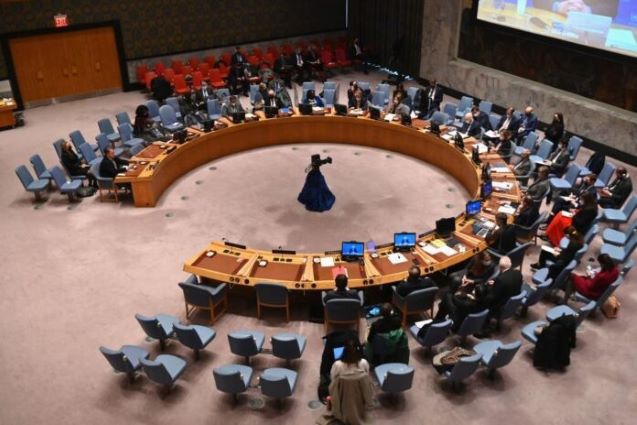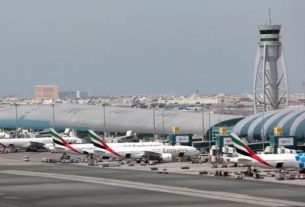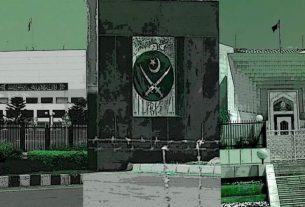ISLAMABAD/ GAZA: The United Nations Security Council will hold another emergency meeting on the Palestinian-Israeli conflict on Monday (October 30), on the request of China and UAE.
The meeting has been called after Isreal announced to launch ground offensive into Gaza any time.
Pakistan has been also invited in the meeting where its Permanent Representative Munir Akram is expected to speak on the latest situation in Gaza.
The main focus of the meeting is to get a similar resolution adopted which was passed by the UN General Assembly, Munir Akram told The Nation on phone from New York.
He hoped that a resolution would be adopted without being vetoed for which hectic diplomatic efforts are being made by envoys of several countries for immediate ceasefire.
Ambassador Munir Akram said United Nations is deeply concerned on humanitarian crisis in Gaza Strip where hospitals and shelters have been bombed with suspending electricity and water supplies which has made the situation worse for the Gazans.
On the other hand, IDF spokesperson Daniel Hagari from Gaza said in a statement said that civilians in northern Gaza and Gaza City should temporarily move south of Wadi Gaza to a safer area where they can receive water, food, and medicine.
The fresh direction came when the Gazans death toll crossed 8,000 – half of whom are children, according to the Hamas-led Gaza Health Ministry.
“Tomorrow, the humanitarian efforts to Gaza, led by Egypt and the United States, will be expanding,” he added.
Meanwhile, Israeli Prime Minister Benjamin Netanyahu warned the war in Gaza is “going to be long.”
Bibi said the goals of this stage of the war are to destroy Hamas and return the hostages the militant group took on October 7 and still holds in Gaza. Netanyahu confirmed he spoke with family members of the hostages and said he vowed to them that he would exhaust all options to return their loved ones home. Israel’s Defense Minister Yoav Gallant said in a statement his country had entered “a new phase in the war.” The official said Israel “attacked above ground and below ground. We attacked terrorist operatives at all levels, in all places. The instructions to our forces are clear: the operation will continue until a new order is given.”
Hamas has said its fighters are engaged in “heavy fighting” with Israeli forces in Gaza after Israeli military deployed more ground forces across the Palestinian territory.“Our fighters are currently engaged in heavy fighting with machine guns and anti-tank weapons with the invading occupation [Israeli] forces in northwest Gaza,” the Ezzedine al-Qassam Brigades said in a statement. Israel unleashed a massive bombing campaign after Hamas gunmen stormed across the Gaza border on October 7, killing 1,400 people, mostly civilians, and seizing 230 hostages, according to Israeli officials. Since then, relentless Israeli strikes on Gaza have killed more than 8,000 people, half of them children, the Hamas-controlled health ministry in the territory said yesterday.
Despite increasingly frantic appeals for an end to the violence, Israel says it is intensifying its ground operations, while continuing to pummel Gaza from the sky. Hamas authorities reported Sunday a “large number” of people killed overnight in strikes on two refugee camps in northern Gaza.Israel’s Home Front Command earlier warned residents in the southern cities of Ashdod and Ashkelon of incoming missile and rocket attacks. The Palestinian Ministry of Health has raised the death toll from the ongoing Israeli aggression to 8008, with concerns of a significant increase as thousands are feared buried under debris.
Director-General of the World Health Organisation (WHO) Tedros Adhanom Ghebreyesus said families in Gaza “are not safe” after contacting officials on the ground as communication is being restored in the region. He took to X (formerly Twitter) saying that hospitals in Gaza are “overwhelmed with patients” prompting the urgent need for more health supplies
On the other side, Israeli army has warned Palestinians to evacuate the Al-Quds hospital and bombarded the areas near the hospital, Arab media reported.The World Health Organization (WHO) expressed concern over the Israeli army’s threat to evacuate the hospital. It is impossible to evacuate the hospital without endangering the lives of the patients, WHO said. Furthermore, the Israeli army claimed that there is no shortage of food, water and medicine in Gaza, a claim that has been contested by their ally USA.US officials said that according to reliable international partners in Gaza, shortages of food, water, and medicine persist in the area. According to US national security spokesman Jack Sullivan Kabayan said Sunday that Israel must distinguish between Palestinian citizens amid the ongoing conflict.
He added that Hamas fighters and that Israel should take all possible measures to keep civilians and combatants separate in the Gaza conflict. Sullivan added that the Israeli Prime Minister also called for an end to the violence of extremist Jewish settlers against the people of the West Bank. On the other hand, the Palestinian Red Crescent Society reported that 94 trucks of relief goods have arrived in Gaza from Rafah Crossing, with ten more trucks to arrive soon.
The United Nations (UN) has also warned that “civil order” was starting to collapse in Gaza after thousands of people ransacked its food warehouses in the war-torn Palestinian territory.The UN Relief Agency for Palestinian Refugees (UNRWA) said wheat, flour and other supplies had been pillaged at several warehouses. “This is a worrying sign that civil order is starting to break down after three weeks of war and a tight siege,” said UNRWA’s Gaza chief Thomas White. One of the warehouses in the central town of Deir al-Balah had been used to store supplies from humanitarian convoys that began crossing into Gaza from Egypt on October 21, it said. “Thousands of people broke into several UNRWA warehouses and distribution centres in the middle and southern areas of the Gaza Strip, taking wheat flour and other basic survival items like hygiene supplies,” UNRWA said.
Meanwhile, Palestine Telecommunications (Paltel) announced in a post on its Facebook page that land line, cellular and internet connectivity were gradually being restored after being severely disrupted Communications in Gaza were partially restored on Sunday morning. Paltel said in its statement Sunday: “Despite the seriousness of the field situation, our technical teams were and are still doing everything in their power to repair as much damage as possible to the network, as much as possible and within the available capabilities,”
The Jawwal, NetBlocks Telecommunication Company also announced that its telecommunication services were gradually being restored. On the other side, pro-Palestine demonstrations around the world continue demanding Israel to cease its bombing of Gaza, which is now in its third week of escalation.
Gaza suffered a total communication blackout Friday night, cutting off its residents from the rest of the world as a result of Israel’s bombardment, a move which was protested by global citizens. Pro-Palestine protesters in London, New York, and Turkey took to the streets in huge numbers to call out Israel’s war crimes in Gaza.__The Nation





